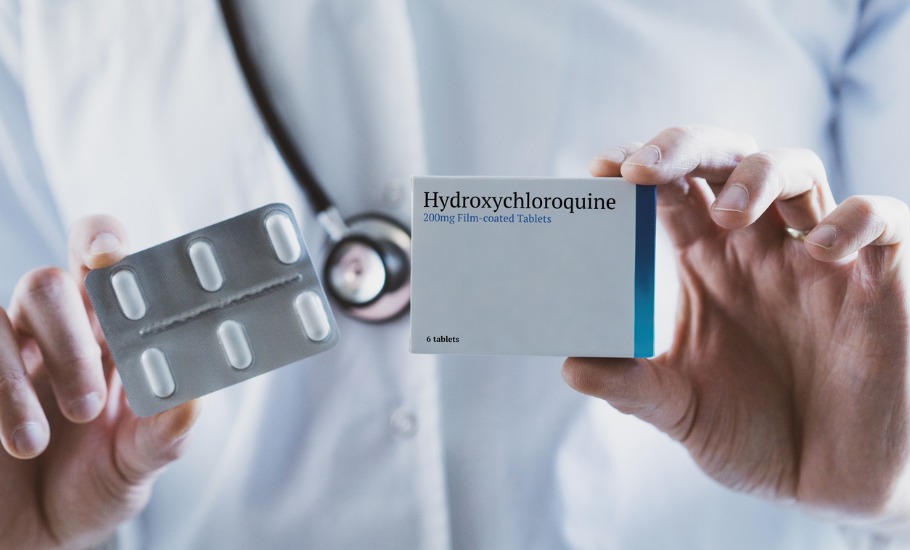
India's malaria is 'helping' nations combat COVID-19: Know how
India is the biggest manufacturer of hydroxychloroquine, the anti-malarial drug that is being touted as a game-changer in the fight against COVID-19 and is being aggressively sought by US President Donald Trump.

India is the biggest manufacturer of hydroxychloroquine, the anti-malarial drug that is being touted as a game-changer in the fight against COVID-19 and is being aggressively sought by US President Donald Trump.
The country has the capacity to quickly ramp up the output of hydroxychloroquine, however, the drug cannot be manufactured in developed nations such as the US because of non-existent malaria.
Days after it added the drug to the list of more than two dozen active pharmaceutical ingredients (API)s that cannot be exported while officials get a handle on how much will be needed for the COVID-19 outbreak in the country, India on Tuesday (April 7) agreed to partially lift the ban after Trump sought supplies for the US.
Hydroxychloroquine is very similar to chloroquine, one of the oldest and best-known anti-malarial drugs, but with lesser side-effects. It can be bought over the counter and is fairly inexpensive. But its purchase and use has been severely restricted as it was selectively used in the treatment of coronavirus because of its antiviral properties.
Related news: After Trump’s warning, India partially lifts export ban on hydroxychloroquine
According to Indian Pharmaceutical Alliance (IPA) secretary-general Sudarshan Jain, India manufactures 70 per cent of the world’s supply of hydroxychloroquine.
The country has a production capacity of 40 tonnes of hydroxychloroquine (HCQ) every month, implying 20 crore tablets of 200 mg each. And since the drug is also used for auto-immune diseases like rheumatoid arthritis and lupus, manufacturers have good production capacities that can also be ramped up.
Ipca Laboratories, Zydus Cadila and Wallace Pharmaceuticals are top pharma companies manufacturing HCQ in India.
Jain said the production capacity is sufficient to meet the current demand and if the need arises, the companies are committed to ramping up the production.
Recently, the Ministry of Health and Family Welfare had reportedly placed an order for around 10 crore tables of HCQ with Ipca laboratories and Zydus Cadila.
India gets the active pharmaceutical ingredient (API) that is used to manufacture HCQ from China and supplies so far have been steady.
Related news: US may retaliate if India doesn’t export Hydroxychloroquine tablets: Trump
As much as 70 per cent of all the APIs needed by India to manufacture drugs come from China.
After Trump stated that the US could “retaliate” if India does not release stocks of the drug, Indian officials said exports of hydroxychloroquine and paracetamol will be allowed depending on availability of stock after meeting domestic requirements and existing orders.
Last month, the US Food and Drug Administration (FDA) partially lifted a three-year-old import alert on Ipca’s two plants to import the medicine, since it is the drug’s top manufacturer globally. Zydus Cadila has also received an order from the US.
Pharma industry officials said the country has enough stock of HCQ and companies were ready to ramp up the capacity to meet domestic requirements as well as exports.
On March 25, India had banned export of HCQ and added it to a list of more than two dozen APIs that can no longer be exported even as the country is the largest exporter of the drug.
Officials said India would export the drug on a case-by-case basis after meeting all the domestic requirements.
“The Government has withdrawn the restrictions on 12 products and its formulations. Various scenarios are being assessed and it will be the endeavour to meet both the domestic demand and export obligation for Paracetamol and hydroxychloroquine,” Jain said.
Related news: Centre constitutes EG6 committee to revamp fight against COVID-19
The objective is to minimise speculative buying and hoarding in these trying times and ensure balance in the distribution for patients and segments who need them, he added.
In a similar vein, Indian Drug Manufacturers Association (IDMA) Executive Director Ashok Kumar Madan said: “India needs around 24 million tablets per year as on date for the three indications — malaria, lupus, and rheumatoid arthritis, it was being used”.
India currently has an annual installed capacity of around 40 metric tonnes of active pharmaceutical ingredients (APIs) of hydroxychloroquine. With this capacity, “we can make around 200 million tablets of 200 mg”, he added.
This indicates that India, currently, has spare available capacity. Now, “we have to see how much the country’s requirements for the drug would grow for both treatment and prevention of COVID-19. The companies have already started ramping the capacity,” he said.
The major API makers for the drug in the country are Zydus, Ipca and Mangalam Drugs. The major formulation makers of hydroxychloroquine are Ipca, Zydus, Wallace Pharmaceuticals, and Cipla, Madan said.
Related news: Is shortage of anti-HIV drugs during lockdown as common as it looks?
India exported hydroxychloroquine API in April-January 2019-20 period worth ₹1.22 billion. During the same period exports of formulations made from hydroxychloroquine were at ₹5.50 billion.
The Indian Council of Medical Research (ICMR) recommended HCQ be used as a preventive medication for COVID-19 high-risk groups.
It has also recommended the use of the drug for those involved in the care of suspected or confirmed cases of the coronavirus and for asymptomatic household contacts of laboratory-confirmed patients, apart from healthcare workers who are involved in the treatment of COVID-19.
Each COVID-19 patient reportedly needs 14 tablet course and so the 10 crore pills ordered by the government can potentially treat over 71 lakh people.
(With inputs from agencies)

